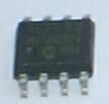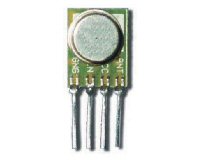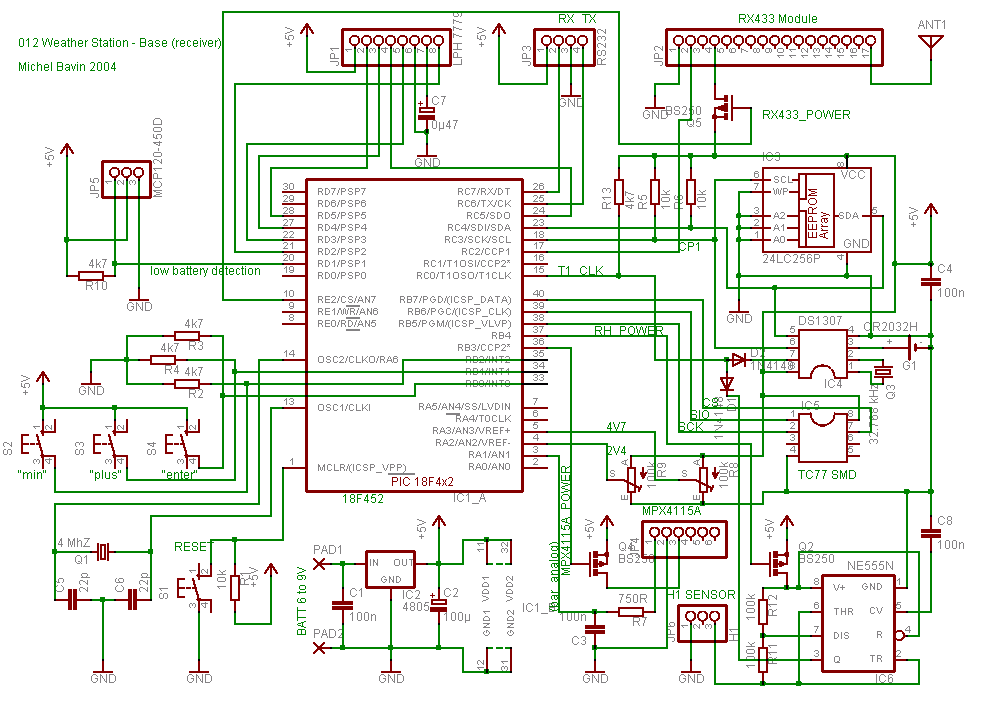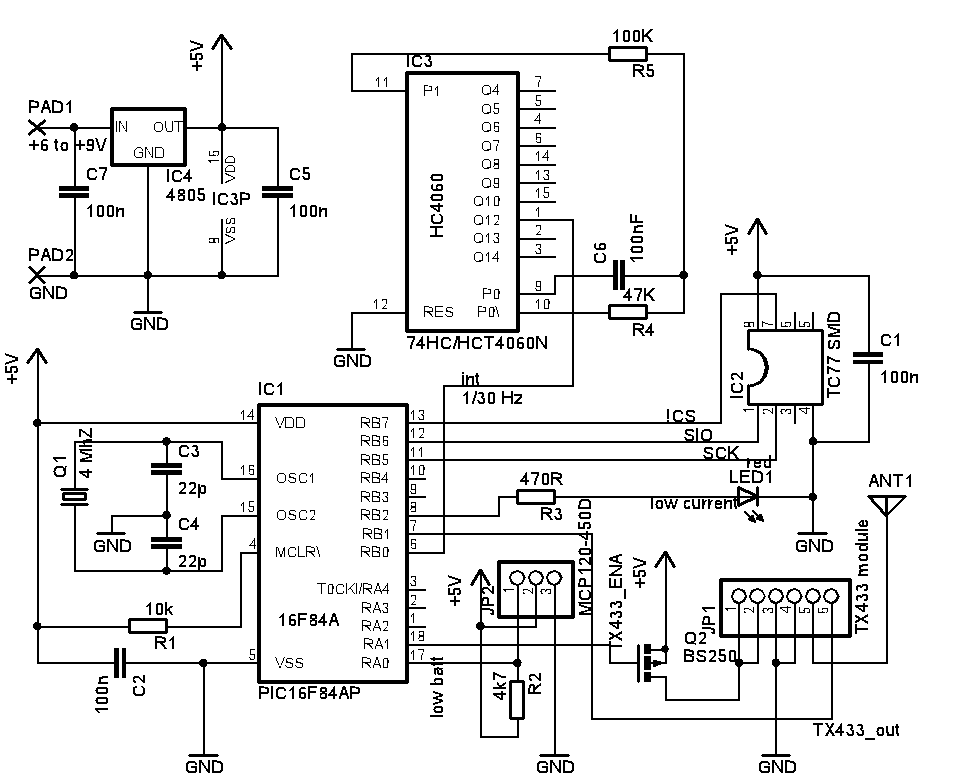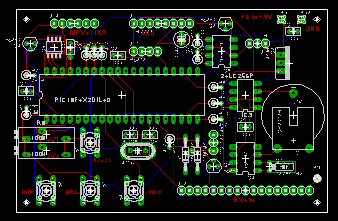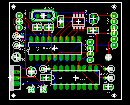| Now this was a huge project! All sensors had to be fully
tested one at a time, wireless communication had to be perfect, various LCDs
were tried. Nevertheless, here's the result: hope you enjoy it! The circuit
may be powered by a small 9V battery, but you'd better take a couple of
AA-batteries. A 6-pack will last a several months. Consumption for the base
station is around 8 to 9 mA whilst
active and only 2 to 3 mA in sleep mode (LCD remains on.) The transmitter
takes slightly less. The receiver (base station) is active during 5 seconds
& then goes to sleep for 45
seconds. The transmitter takes a nap every 30 seconds or so. Menu mode
is entered when pushing the "menu" button (what's in a name?) for 1 second.
Browsing & value changes are done with the "min" & "plus" keys. When in
normal mode (like in the picture above), the "min" and "plus" keys can
browse through the different histories. All these controls will wake up the
processor if it was in sleep mode. On the left-hand side of the LCD we
have (from top to bottom:) Outside temperature, Pressure, Inside
Temperature, Relative Humidity, Calendar and Clock. On the right:
High value of the past 42-hours, Bar graph histogram (right is most
recent value), Low value. All sensors are read & LCD (left-hand side)
are updated every 50 seconds. Histogram is updated on the hour (e.g. 10h00,
17h00, 22h00,...) All data is stored in EEPROM and is loaded at power-up. In
case of a power failure (or when changing batteries), there will be no data
(nor history) lost. |

